Lioness: The rapper on the frontlines of the battle against COVID
The Namibian doctor-by-day, rapper-by-night talks about juggling two careers and how her mother inspired her to succeed.
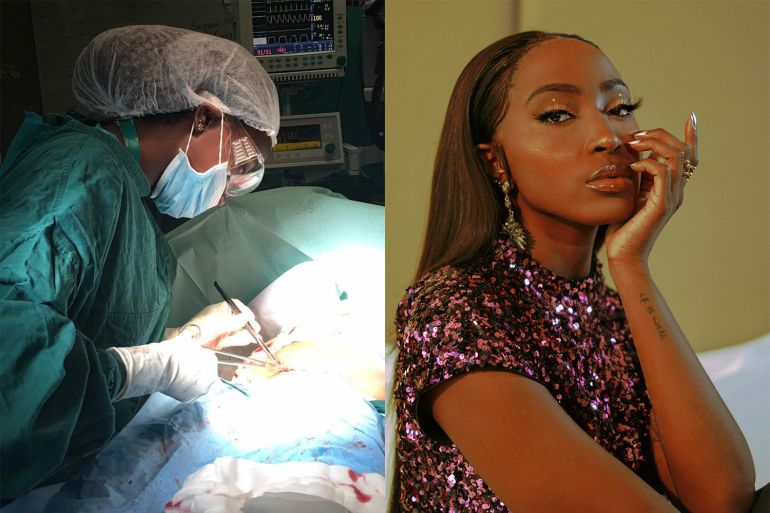
Windhoek, Namibia – On stage, Lioness can mesmerise an audience, keeping eye contact as she holds the microphone close, the crowd singing and dancing along. In normal times, that is where the 27-year-old performer would prefer to be. But these are not normal times and the Namibian rapper – whose real name is La-Toya Mwoombola – has another place where she is just as comfortable as on stage.
In the midst of the pandemic, the doctor-by-day and rapper-by-night has been busy battling COVID-19 and other diseases as an intern at one of Namibia’s state hospitals.
Keep reading
list of 4 itemsWhy has Australia declared a ‘national crisis’ over violence against women?
Manhattan prosecutors announce retrial for film producer Harvey Weinstein
After a minister killed his wife, Kazakhs address domestic violence taboo
“I enjoy the duality of my capabilities,” she tells Al Jazeera, sitting at a popular seafood restaurant in the capital, Windhoek, on one of her days off from her hectic medical schedule. She sits with her legs crossed, wearing a casual beige dress, glittering earrings and sunglasses.
Although it is a Sunday afternoon, the restaurant is busy. Waiters wearing masks run around serving guests. From the table, the view extends out over the rolling green hills of Klein Windhoek, one of the city’s neighbourhoods featuring large colonial houses, modern mansions and sprawling embassies. The restaurant is around the corner from La-Toya’s old high school, and is a place she eats at often, she says.
Our table is slightly hidden from the other guests, tucked away next to the entrance. Still, a fan, or a friend – it is hard to tell in Windhoek – recognises her. “What are you doing here?” he shouts laughingly at La-Toya as he walks by, adding: “I recognised you from the back of your head!”
Since 2015, when she released her first EP ILL3 under her stage name Lioness, La-Toya has shaken up the Namibian rap scene with her talent and unique style of complex and tight-knit lyrics.
But these days, she follows the strict daily routine of a medical professional: waking up at 4:30am, arriving at the hospital by 6am, and staying on call for two 12-hour shifts. In the past, she says, sometimes, she would be at the hospital for 40- to 50-hour stretches – after which she would go to the studio. But then she broke down from exhaustion. So now, she often falls asleep straight after work and leaves music until the weekend.
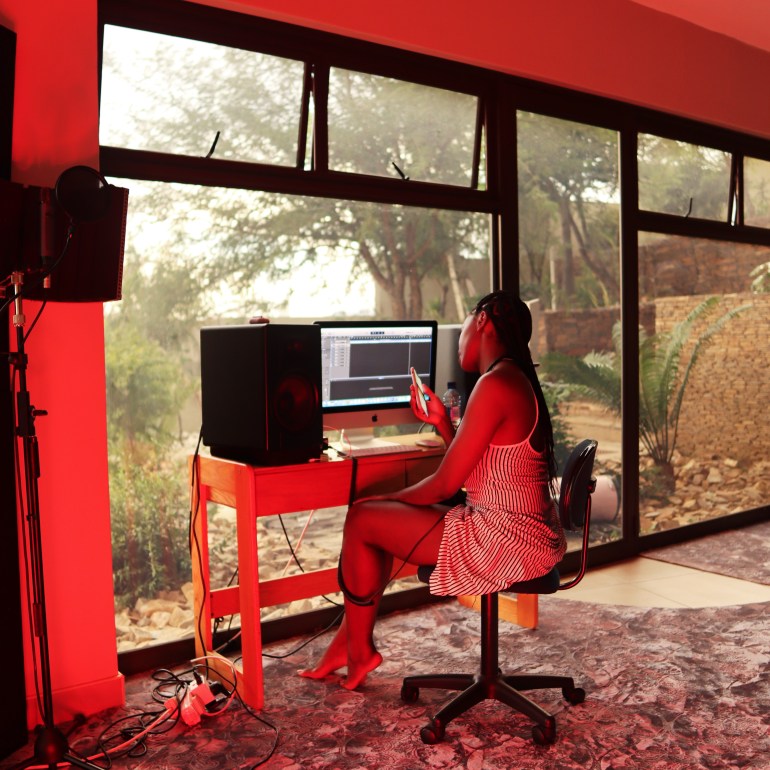
“If I’m not working in the hospital, then I’m in the studio just writing music,” she says with a wide smile and a soft voice. “But I’m not in the studio every day. On average, I try to spend at least one day there to work on my music.”
For her, making music and going into medicine have both been about claiming space: If you are good at something, you deserve to be in the room – even if that room has so far mostly been full of men.
The Namibian rap scene has been dominated by men like The Dogg and Gazza for years. Not many women break into the industry, as the country’s patriarchal society and traditional gender roles rarely seem to align with standing on a stage and spitting bars. Overcoming such stigma, as well as bullying and sexual harassment by men in the industry, were some of La-Toya’s biggest challenges, but she feels that, slowly, change is happening.
“Finally, it’s becoming accepted for a woman to be seen rapping in Namibia,” she says, pushing her sunglasses up onto her head.
Her mother’s daughter
While many would find it impossible to combine a career in medicine with one in music, La-Toya says she was inspired by her late mother, Dr Linea Nuugwedha, who also did two jobs at once. While working on her PhD in childhood education and lecturing at the University of Namibia, Linea managed to raise La-Toya and her sister Gina all by herself.
La-Toya’s parents divorced when she was four years old. After that, her relationship with her father grew distant, and she recalls that there were difficult times over the years.
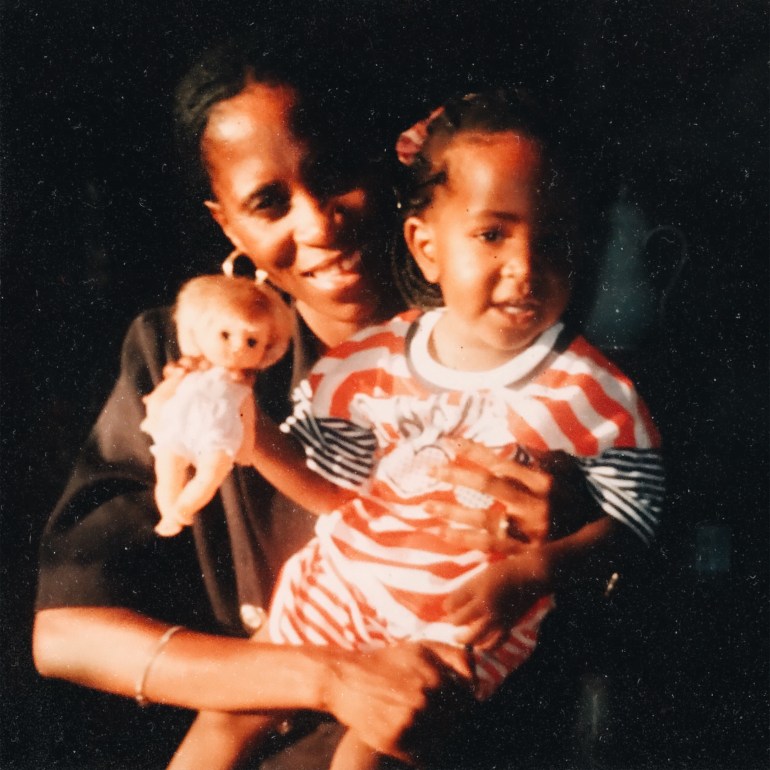
“Growing up, when I was a girl, it was literally my mother, my sister and I. So we were a tight circle of feminine energy. We learned a lot of habits from each other, the good and bad,” she says.
In high school, she and her sister were among the few Black students at a predominantly white private school, St Paul’s. She remembers the feeling of having less than the other children but the strength and support of her mother always got them through.
Despite the difficulties Linea faced, including working two jobs while being a single parent, she made sure her girls participated in extracurricular activities such as ballet and piano lessons. And she never missed a recital. She was always there, La-Toya remembers.
“She was just that pivotal, pivotal centrepiece … Whatever she said, went. And so we learned to adopt certain behaviours and conformed to certain habits. And one of those habits was hard work.”
With her high cheekbones, mahogany eyes and a gap between her upper front teeth, the rapper is nearly the spitting image of her mother, who she describes as a woman who was “gentle and stern”. La-Toya speaks with both disarming candour and a softness that is reminiscent of those same descriptors.
But she does not simply resemble her mother; she also inherited her ambition. It is from her that she says she learned perseverance and perfectionism.
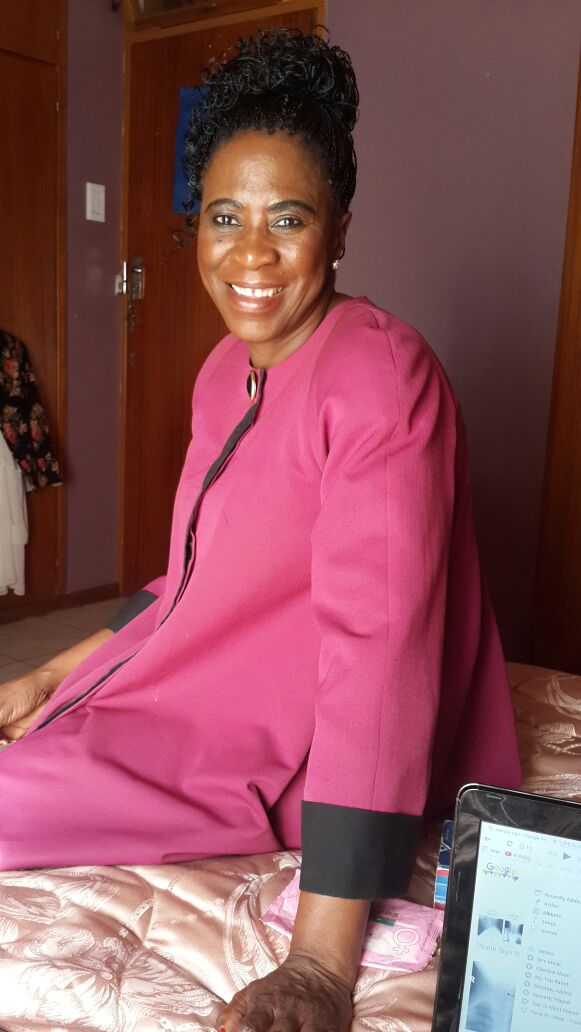
“My mother really instilled this hard-working personality in me,” La-Toya says. “And she was quite musical herself. She used to play the guitar. After her chemo, I wanted to buy her a new one, but she only ever had one round,” her voice quieter now as she discusses losing her mother at age 58 to ovarian cancer in 2018.
There is sadness in her voice when she talks about Linea. She deals with the emotions of her loss in her heartbreaking single, Meme:
How can the womb that birthed me want to kill you,
Hospital visits, I was always nervous from the drive
I could see your body giving in
Music as an escape
Years before she became the Lioness, in the early days of experimenting with music, La-Toya would come home from high school and listen to beats created by her sister, Gina Jeanz, 30, who is now a successful DJ and model in South Africa.
La-Toya would sing along to the music, but says her sister deemed her singing sub-par, so she changed her approach and began rapping along, using a timer to learn how long the beat would last. Soon she had made spitting bars her signature style.
In school, La-Toya brought home good grades but was considered to be one of the shy ones. So she saw music as an escape, as a way to relax. She would listen to as many artists as she could, because to her, listening meant learning.
“It was just basically like a dynamic where music is my escape but it’s also something that I learned from constantly,” she explains. Among her favourites were DMX and TLC.
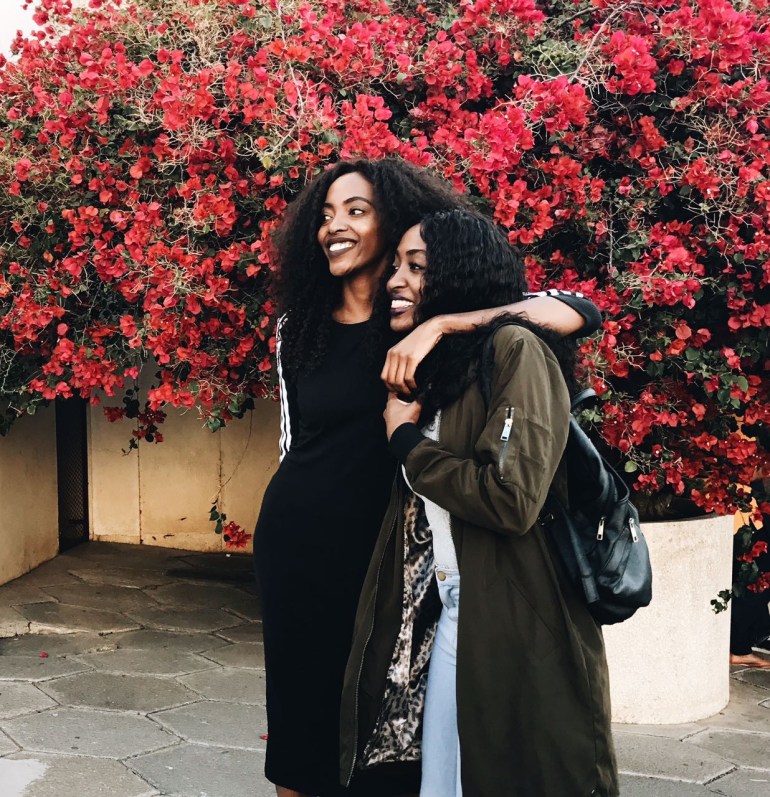
Soon La-Toya’s music evolved, and it became more than just playing around with beats and bars in her sister’s bedroom. She released her first album, Pride of the CilQ, in 2018, the same year she graduated from the University of Namibia with a Bachelor’s in Medicine and Surgery.
“And then it just became one of those things where I wanted to learn more, I wanted to see where my skills could go. Then, I started doing Cyphers, which is basically like rappers rapping in a circle to get bragging rights. After that, I started recording, and most of the time I was really just listening and paying attention and learning how things were done. The time just flew by and I saw myself on stage and would hear myself on the radio,” she says of her quick ascent into the Windhoek music scene.
Through collaborations with other artists and performing at some of the biggest events in the capital, the young musician quickly started dominating the Namibian rap scene.
La-Toya recorded her debut album over four months by herself in a home studio, she says, after she was bullied by a male producer who at first told her she was not good enough for the industry. The bullying quickly turned into sexually charged comments, she says, which is when she drew the line and stopped working with the producer in question.
“Every woman in the industry has to go through this. I just wanted to brush the comments away but they do affect you,” her voice cracks slightly as she speaks, “and that wasn’t what I was there for.”
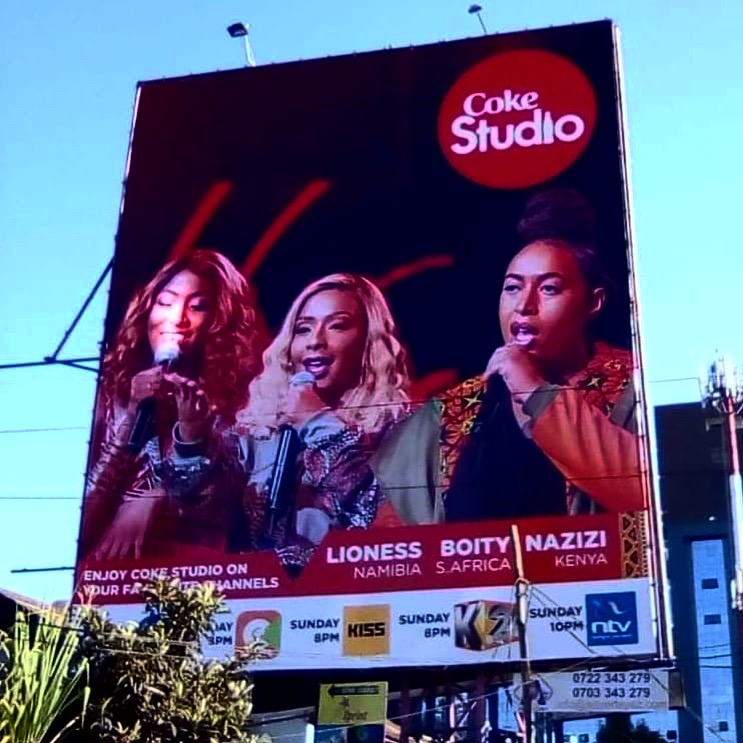
Since then, she has rapidly risen to fame, with international performances in Malawi, South Africa and Kenya. BBC News Africa and other international outlets have reported on her. Rapping in both English and Oshiwambo, she has represented Namibia on a broader African stage and helped take African music back to its roots by incorporating her native language.
Her chosen stage name also derives from the Oshiwambo word for “Little Lion” – a nickname her family gave her as a child because she has so much hair – almost like a lion’s mane.
La-Toya carries her family and upbringing with her in other ways too – in the relationship advice she says her mother gave her when she was younger that she still values, and in the career guidance that determined many of her important life decisions.
“Despite having two jobs, my mother was still excelling in them and she was making sure that she’s contributing to the growth of these careers, you know, putting in as much effort as she can to make it happen,” La-Toya says. “So I think that that’s what inspired me and that’s what gives me the possibility to continue to push and work hard and put effort in both places [music and medicine] and see how it grows and you fail and win, but in the end, you just better yourself constantly.”
Medicine as a profession
After achieving good grades in both physics and biology at school, it was clear to La-Toya that she would go into the sciences, she says. But it was her mother who suggested she study medicine, as Namibia’s first university faculty for the subject had just opened in 2010.
“And I think that the reason, partly, was because I was also really dedicated to helping people throughout my high school. I always did community service programmes and charity programmes and it just became a norm to me,” she says with a big smile on her face.
She remembers how her high school would take them to rural villages where they could play, draw and do lessons with children living there – many of whom did not have access to education and opportunities. “I wish I could track down the little girls from then, and find out what they are doing now. They used to say it was so inspiring for them to see someone like me – a girl – doing all these things.”
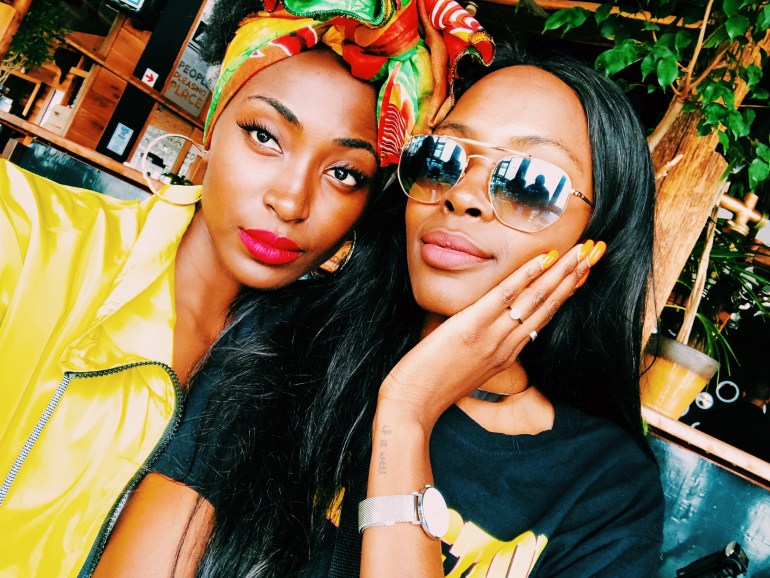
During the past year, Dr La-Toya has worked hard to help fight the COVID-19 pandemic.
Namibia, which is currently experiencing a rapidly rising third wave, has seen more than 84,000 cases and 1,400 deaths. It had implemented strict measures from early on in the pandemic, but the hospitals and front-line workers are still feeling the struggle – especially now, as hospital beds are filling up and oxygen supplies are running low.
“Your colleagues are being pulled out left, right and centre,” La-Toya says, describing what the situation at the hospital is like, “and you have to put in double shifts all the time. On top of that is the constant paranoia of contracting the virus yourself.”
While the situation has been extremely taxing, it has also bolstered her fascination with medicine. “I think it is incredible that we were able to get a vaccine in a year. It really shows that medicine is constantly advancing and the technology is evolving, too.”
In her spare time, she enjoys going to the gym where she lifts weights. “I take my health very seriously,” she says, “I also love watching MMA (mixed martial arts).” And she spends a lot of time with her boyfriend, whom she calls her best friend.
“It took a lot of sacrifice, personal sacrifice in other areas of my life, my friends, my partner, my family. It also took a lot for me in terms of free time. I was always working and I was always trying to perfect my art and my craft and I always just wanted to be better and do better,” she explains slowly, tilting her head in thought. But there is no bitterness in her voice when describing the toll her career has taken on her personal life. She knows what she is working for.
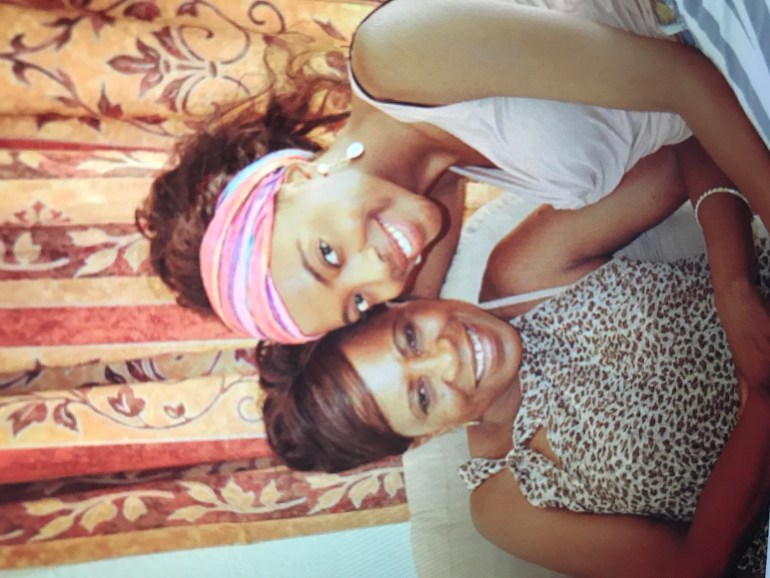
“After medical school, I wanted to focus on my music but my mother had passed away during the time that I was about to finish it. And I had to [tell myself], like ‘Buckle up, okay girl, we have to get a job,’ because I had to pay for medical school,” she explains.
“So that’s why I decided to do both things. And I wish I was at the liberty to do one, but currently, I’m not financially. I definitely feel that work ethic as a doctor really gives you that thing that you can carry across so many other careers – because it’s obviously one of the toughest careers,” she says.
For now, La-Toya has decided to complete her two years of medical internship and then focus on her musical career full-time once she is done. “I really believe in finishing what you started,” she emphasises, “but once I’m done, I really want to focus on my music career.”
A worthy sacrifice
Throughout, La-Toya has known why she is doing it all.
“Everyone needs to know that things in rap are changing and that’s why I can help with breaking the stigma,” she says, reflecting on the myths about women not being good enough for rap that are upheld by the industry. “I’m just going to be a rapper unapologetically and I still have good grades, so I succeed in being a doctor, too.”
For all the young girls who look up to her, the rapper has become a worthy role model who is breaking down barriers in the world of medicine and music.
But for La-Toya, it is Linea’s memory and example that stays with her and that she misses most.
“She was such a guidance and a compass to me,” La-Toya remembers quietly. This is why she carries on her mother’s legacy: to inspire other women and succeed.